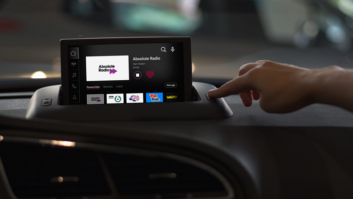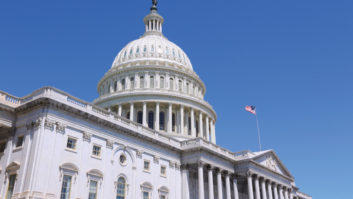The public airwaves belong to you. … In the exchange for the free use of the airwaves, radio and television broadcasters … are required to serve the needs of your community.
It’s the job of the FCC to ensure that the airwaves foster a competitive, diverse and locally responsive media marketplace.
I attended a forum in Oakland [in October] on the future of media, and heard refreshing wisdom on the need to prevent further concentration of media ownership. The views expressed by Bay Area citizens stood in sharp contrast to the views what we hear inside the Capital beltway, where lobbyists from the largest media companies roam the city demanding even more power and size.
The FCC sets limits on media ownership that affects every citizen’s exposure to news, information and entertainment programming. The laws that govern the FCC say we are to maximize the diversity of viewpoints to which Americans are exposed. We are not to allow a few media giants to dominate our media landscape.
As a former student in the Bay Area, I know the area is a hotbed of community involvement and activism. [The media ownership] forum was no different. It was organized by the California State Conference of the NAACP, the Media Alliance and the Youth Media Council.
‘Greatest rollback’
While each attendee shared a different experience, everyone agreed that the airwaves belong to the American public and that the FCC should not put narrow corporate interests ahead of the public interest.
Three years ago, over my objection and that of Commissioner Michael Copps, who also attended the forum, the FCC approved the greatest rollback of media ownership protections in the history of American broadcasting. The decision would have allowed a single owner in a community to control up to three TV stations, eight radio stations and the major daily newspaper.
This abrupt move created the biggest public uproar the FCC had ever seen. It was rejected by Congress, the courts and the public. Three million citizens nationwide, from the left of the political spectrum, to the right, and virtually everyone in between, expressed their opposition.
The U.S. Senate even passed a resolution disapproving the FCC’s rules, and the U.S. House of Representatives was poised to do the same. In 2004, an appeals court sent the rules back to the FCC, and chastised the agency for its failure to make sensible rules that served the public’s need for competition, localism and diversity.
We now have an opportunity to start from scratch. Yet, the FCC has not guaranteed that the public will have an opportunity to comment on specific proposals before the new regulations are finalized. We also have failed to permit a longstanding Localism Taskforce to complete its work to address the public’s concerns about the paucity of local content on TV and in radio.
In the Bay Area, I heard concerns about the concentrated newspaper market in which the Hearst Corporation and MediaNews Group Inc., control most of the regional newspapers and the news operations. The MediaNews’ San Jose Mercury News has announced staffing cutbacks.
Reports say 40 news and editorial staff jobs will be eliminated. I also learned that the Latino community was particularly concerned about NBC/GE’s recently announced plans to eliminate two locally produced Spanish-language newcasts on Telemundo’s KSTS (Channel 48, San Jose), and to replace them with news from a centralized hub out of Fort Worth, Texas.
Have your say
The law compels us to listen to these public concerns during the course of the current media ownership proceeding.
We need to continue to hear your voice about the effects of media consolidation in your communities. Share your concerns on media ownership and inform us about the types of programs that will most benefit your local communities. I urge you to provide insight on how the FCC can best ensure an open rule-making process, so that we can serve the public interest with maximum effectiveness.
Remember, your views can influence media policy decisions that affect people … across the nation for generations to come. I will do everything in my power to ensure that, in the pending review of media ownership rules, we are more receptive to the views of the public. After all, the law says we are to promote the public interest, not the interests of the media companies that use the public airwaves.
The FCC welcomes your comments on how the commission should analyze its broadcast ownership rules and could best promote locally responsive radio and television. There are no deadlines, but a final decision is likely in early March 2007.
The comment period deadline is Dec. 21. To file reply comments, go to: http://www.fcc.gov/ownership/comments.html
This is adapted from the original published in the Nov. 5 San Francisco Chronicle.







